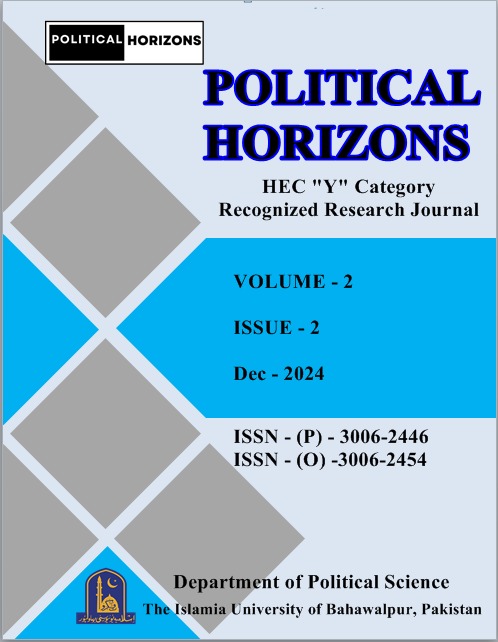Japan's Influence: Key Lessons for Pakistan's Political, Social, and Economic Growth
Abstract
The paper explores Pakistani modernization experiences and challenges in relation to Japanese model of developmentalism. It outlines the history and political culture of Pakistan from a developing to the developed nation. The study uses qualitative research design with secondary sources such as government reports, documents, research articles and case studies of multiple cities from Pakistan and Japan under the implication of modernization theory. The study shows that Pakistan is in the phase II of modernization process; in this phase the posited elements are essentially either weak political institutions or corruption or regional imbalances. The Pakistani cities such as Karachi, Lahore, and Islamabad face a shortage of proper urban liveability infrastructure and smart city ideas; the cities like Sialkot and Peshawar suffer from poor diversification of industries and unemployment rate particularly among youth. There is still a rather weak social cohesiveness and ethno-religious tensions enhance provincial divisions. In addition, it is claimed that dealing with these issues calls for a qualified solution encompassing political liberalization, economic growth and development, and social integration in the same way that the Japanese periphery modernized and reconstructed itself after the Second World War. Thus, it is possible to outline the further perspectives concerning the most important aspects such as the need for clear and non-corrupt governance, integrating the youth with reference to the existing policy, and using the opportunities of the youth for reinforcing economic development. The research includes improving cooperative practices between the federal government and the provinces, working on corruption matters, and carrying out educational changes in schooling effort that covers vocation attachment skills. Pakistan can seek actionable steps from the Japanese experience that can guide it on designing practical measures; transforming the country into a sustainable modernised economy that benefits all citizens equally.
Keywords: Modernization theory, Japan model, Youth Empowerment, Smart Cities, Governance Transparency, Sustainable Development.

Downloads
Published
How to Cite
Issue
Section
License
Copyright (c) 2024 Khizra Anwaar

This work is licensed under a Creative Commons Attribution-NonCommercial 4.0 International License.




